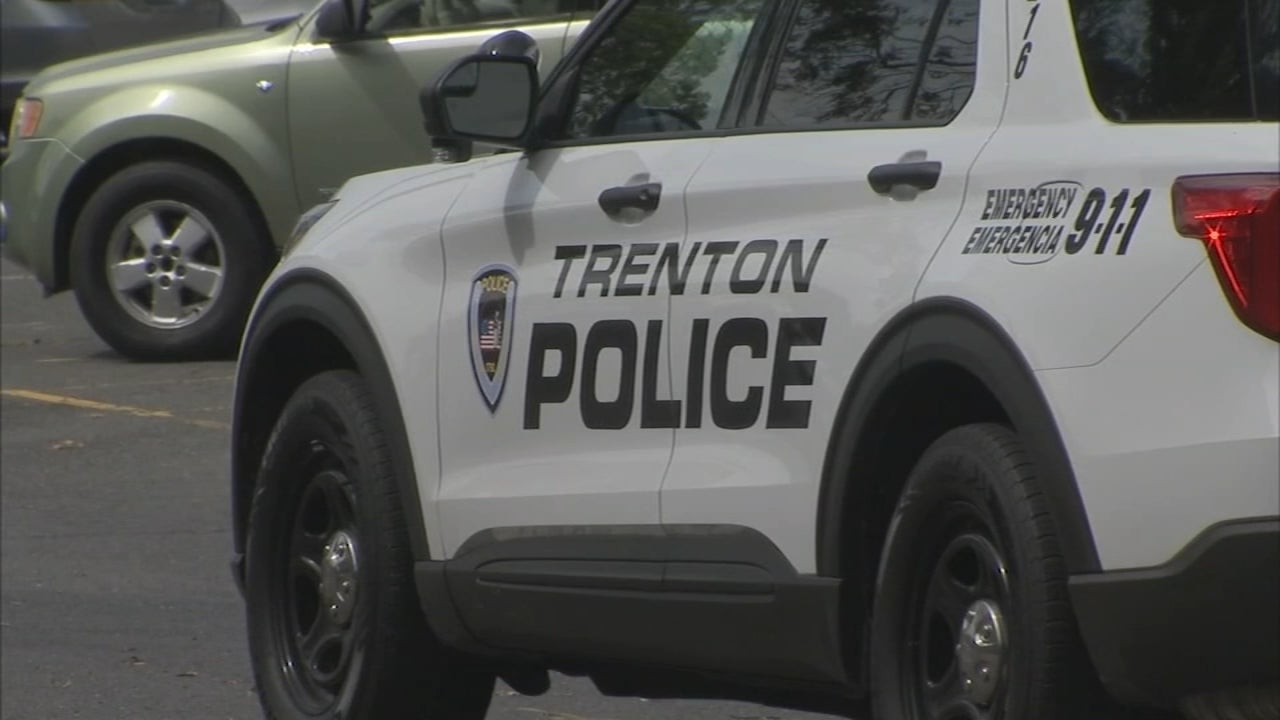New Jersey
Clean energy push in New Jersey, elsewhere met with warnings the government is coming for your stove

BRICK, N.J. (AP) — New Jersey is pushing an ambitious agenda to move its more than 9 million residents away from natural gas and gasoline to heat their homes and power their cars, in favor of electricity to do the job of both.
But like many other places in the country, the moves, designed to lessen the harmful impact of burning fossil fuels on the planet’s climate, are garnering significant opposition from foes who warn that the government is coming to take away your stove and your car.
New Jersey utility regulators are to vote Wednesday on a series of “decarbonization” measures designed to incentivize buildings to switch from natural gas heat to electric.
Toll cheats cost New Jersey more than $117 million last year, a chronic problem that officials say has become even worse since the pandemic.
Those fleeing Afghanistan as the Taliban swept back into power two years ago included university students.
New Jersey has filed a federal lawsuit aimed at stopping New York’s plan to charge big tolls to drive into the most visited parts of Manhattan.
For years, a common critique of the beloved New Jersey rock band The Gaslight Anthem was to label them “Bruce Springsteen” copycats.
Democratic Gov. Phil Murphy has said he wants only “zero-emissions” vehicles to be available in the state by 2035.
Taken together, they represent aggressive steps to move away from fossil fuel use.
“We build upon our nation-leading record of bold climate action while delivering on our promise to utilize every tool at our disposal to combat the intensifying climate crisis,” Murphy said earlier this month in announcing the requirement that manufacturers ramp up their production of electric vehicles, reaching 100% by 2035.
“No one is coming for anyone’s gas stove,” the governor said. “No one is walking into anyone’s kitchen. No one is going to be forced to do anything, in any way.”
But to opponents, the moves represent serious and costly government overreach, which will inevitably need to be enforced by bans.
“New Jerseyans are learning that the ultimate goal of ‘building decarbonization’ and Gov. Murphy’s extreme green energy plan is the elimination of affordable natural gas and the extremely costly replacement of gas stoves, furnaces, and hot water heaters,” said Republican state Sen. Anthony Bucco. “They’re realizing there’s no way to fully electrify the entire state without bans, mandates, expensive conversions, and higher energy bills.”
While Murphy said the electric vehicle rules do not impose any obligations onto consumers or car dealerships, Brad Schnure, a spokesman for Senate Republicans, said there is no way New Jersey can reach the governor’s stated climate goals without mandates.
A spokesman for the New Jersey Board of Public Utilities said the agency will not comment until after it votes on proposed decarbonization measures on Wednesday. Those steps include goals and targets for buildings to install heat pumps instead of natural gas cooling and heating equipment.
These devices move heat between the air inside a home and the air outside a home, while ground source heat pumps transfer heat between the air inside a home and the ground outside a home. Low-income households would qualify for financial assistance to purchase and install them.
Decarbonization of buildings is a critical component in New Jersey’s energy master plan and is the focus of an executive order by the governor to install zero-carbon-emission space heating and cooling systems in 400,000 homes and 20,000 commercial properties, and make 10% of all low-to-moderate income properties electrification-ready by 2030.
It’s already happening in places like Berkeley, California, which in 2019 voted to ban natural gas connections in all new construction. San Francisco and New York City soon followed.
But other places, particularly those with Republican-led governments, are resisting. As of June, 24 states have adopted laws prohibiting natural gas bans. They call the laws “pre-emption” measures.
New Jersey’s business community is concerned with the cost of Murphy’s proposals, which some opponents have put at more than $1 trillion.
“While we should all work to reduce carbon emissions, the ban of gas-powered cars in such an expedited time frame does not take costs or feasibility into account, and it is likely to result in a major increase in New Jersey residents who actually won’t be able to afford to drive,” said Ray Cantor, an official with the New Jersey Business And Industry Association.
“The governor’s plan will make new cars virtually unaffordable for working and middle-class consumers and will severely limit vehicle consumer choice,” added Jim Appleton, president of the New Jersey Coalition of Automotive Retailers.
But the state’s environmental community strongly supports the switches.
“Building electrification is environmental protection from the inside out,” said Anjuli Ramos-Busot, state director of the Sierra Club. “Modern electric technologies are crucial to making our communities more resilient to extreme weather and are far more efficient than fossil-fuel alternatives. Our clean energy transition not only happens out there on our grids, but also right here in our homes and shared spaces so that we can all breathe easier while taking action to reduce harmful climate pollutants.”
Doug O’Malley, director of Environment New Jersey, called the BPU proposals “a necessary step toward reducing emissions from our buildings, the second-highest polluting sector in the state, while delivering clean air and healthier homes.”
___
Follow Wayne Parry on Twitter at www.twitter.com/WayneParryAC

New Jersey
Surprise 7 to 11 inches of snow hit these N.J. towns. Latest forecast.

Up to another quarter-inch of rain is likely to fall by Friday evening across most of the state. Northwestern parts of the state will get another dusting of snow, while some higher elevation spots are expected to get a a few more inches.National Weather Service
New Jersey
New Jersey winemaker says drought helps the grapes, but he’s grateful for the rain this week

The much-anticipated rain finally made its way into the Philadelphia region this week.
For many gardens, nurseries and farms, the rain was needed.
But in Hammonton, New Jersey, Sharrott Winery says the drought wasn’t all that bad.
Sprawling on 34 acres, 22 of those under vine, the owner of the South Jersey winery says the drought conditions actually helped their vines.
Owner and winemaker Larry Sharrott said in the spring, the rain helped their vines grow.
Come August, the rain tapered off and the dry weather from there on out was used to their advantage.
“For grapes, if it’s dry starting in August and then running through the entire harvest season, that’s really good,” Sharrott said. “It helps concentrate the juice basically, so especially with red wine it makes a much more robust red wine. They take on much nicer fruit flavors.”
Sharrott said the team was also happy when it finally rained after the long stretch.
He said it was perfect timing because the vines could use a boost of hydration.
“But the fact that we have some rain now is really good for the vines because at this point they really need a good drink so they can begin shutting down for winter. We want them to be nice and hearty by the time we get the cold January and February temperatures,” he said
And if you are looking on the bright side, too, Sharrott say they are looking forward to future wines.
“We are going to have some great wines in a couple years when these come out of barrel,” he said.
New Jersey
Justice Department finds pattern of misconduct by Trenton Police

From Camden and Cherry Hill to Trenton and the Jersey Shore, what about life in New Jersey do you want WHYY News to cover? Let us know.
The Justice Department said Trenton’s police department have made arrests without legal basis, officers have escalated situations with aggression and used pepper spray unnecessarily.
The results of the yearlong investigation were contained in a 45-page report released Thursday morning during a virtual press conference with U.S. Attorney for New Jersey Philip Sellinger and Assistant Attorney General Kristen Clarke from the Justice Department’s Civil Rights Division.
“The people of Trenton deserve nothing less than fair and constitutional policing,” Sellinger said. “When police stop someone in Trenton, our investigation found that all too often they violated the constitutional rights of those they stopped, sometimes with tragic consequences.”
Maati Sekmet Ra, co-founder of the Trenton Anti-Violence Coalition, said she is not surprised about the Justice Department’s findings.
“You cannot talk about violence that happens and occurs in a place like Trenton without talking about police violence,” she said. “Police have historically brutalized, harassed and now it’s proven that they’re violating the civil rights of folks who live in Trenton.”
Officers violate the 4th Amendment in 2 areas
The two main findings of the report are that Trenton officers use excessive force and conduct warrantless traffic stops, searches and arrests. Both violate the Fourth Amendment to the United States Constitution.
According to the report, officers reported using force in 815 incidents between March 2020 and December 2023. The majority of them involved physical force; pepper spray was used by officers 120 times. A firearm was used once.
In one incident mentioned during the press conference, a 64-year-old man died from respiratory failure after he was sprayed in the face with pepper spray. Officers went to the man’s house to arrest his son who was involved in an earlier domestic incident.
The man, who was not involved in the incident, met with officers outside his front door informing them they would not be allowed in his house without a warrant. As they waited for a supervisor to come to the scene, one of the officers escalated the conversation, taunting the father and son, according to the federal report.
The officer said the son was “talking like he was ‘retarded’ and asking if the father was ‘crazy,’” according to the report. The language the officer used according to the report is considered outdated and a slur toward people with mental disabilities.
As the father was about to re-enter his house, an officer threw him across the porch, against the railing and slammed him face down on the porch steps. As officers were arresting the father, another officer sprayed him in the face.
“The officer who escalated the encounter inaccurately reported that the father physically presented a ‘threat/attack’ to the officer,” the report stated. “He also claimed that he grabbed the father because he feared that a dog inside would come out—a factor that no other officer mentioned and that video footage discredited.”
The father died 18 days after the incident.
-
Business1 week ago
Column: OpenAI just scored a huge victory in a copyright case … or did it?
-

 Health1 week ago
Health1 week agoBird flu leaves teen in critical condition after country's first reported case
-

 Business5 days ago
Business5 days agoColumn: Molly White's message for journalists going freelance — be ready for the pitfalls
-
World1 week ago
Sarah Palin, NY Times Have Explored Settlement, as Judge Sets Defamation Retrial
-

 Science3 days ago
Science3 days agoTrump nominates Dr. Oz to head Medicare and Medicaid and help take on 'illness industrial complex'
-

 Politics4 days ago
Politics4 days agoTrump taps FCC member Brendan Carr to lead agency: 'Warrior for Free Speech'
-
/cdn.vox-cdn.com/uploads/chorus_asset/file/25739950/247386_Elon_Musk_Open_AI_CVirginia.jpg)
/cdn.vox-cdn.com/uploads/chorus_asset/file/25739950/247386_Elon_Musk_Open_AI_CVirginia.jpg) Technology4 days ago
Technology4 days agoInside Elon Musk’s messy breakup with OpenAI
-

 Lifestyle5 days ago
Lifestyle5 days agoSome in the U.S. farm industry are alarmed by Trump's embrace of RFK Jr. and tariffs






















